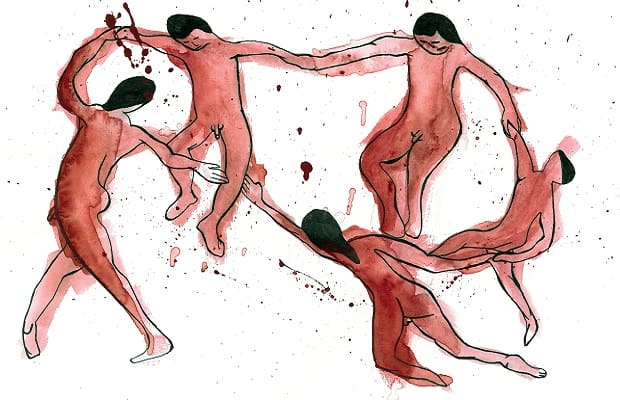For five years I was in a monogamous relationship. We went to IKEA a lot, wined and dined, had to grin and bear each other’s families, and had sex—nothing out of the ordinary. But because my partner and I are both men, we became men who have sex with men (MSM). And it meant that we had engaged in, unknowingly and on a continual basis, ‘at risk’ sex. Because of this, neither of us is permitted to give blood.
Blood is in hot demand. One in three Australians will need blood or blood products in their lifetime, but only one in 30 donates. And yet the Red Cross rejects all men who have had sex with men in the preceding 12 months. We are branded with a statistically significant risk of transmitting HIV, regardless of our safety practices or number of partners.
I am not advocating for a complete repeal of this policy. In 2016, MSM accounted for 87 per cent of newly acquired HIV cases in Australia. And it is possible that blood donated shortly after a recently acquired infection may go undetected and cause further transmission to the recipient. But this ‘window period’ is nowhere near 12 months—it is up to 12 weeks.
The most problematic issue, however, is the Red Cross’ approach to monogamous relationships. To clear up all doubt, there is no risk of HIV transmission for men who are in truly monogamous sexual relationships if both partners are HIV negative. The Red Cross relies on the contention that men who have sex with men aren’t truly monogamous.
One authority for this can be traced to the 2006 Health in Men study conducted by the Kirby Institute, UNSW’s centre for the prevention and treatment of infectious diseases. It was found that in a cohort of gay Australian men, 35.6 per cent of men who said they were monogamous also had casual partners. Although the study is 12 years old, this still has the effect of rendering a gay man’s testimony void, in this respect. It means that gay men in declared monogamous relationships are still associated with a 50 times greater risk of transmitting HIV than the general population.
Statistics are a great way to justify discrimination. At its advent HIV was called ‘gay cancer’ or the ‘gay plague’ because it almost exclusively affected gay men—the data backed this up. And to many it seemed a result of the debaucherous lives that gay men led.
The blame, however does not lie entirely with the Red Cross. In an application to the Therapeutic Goods Administration (TGA) in 2012, the Red Cross sought to reduce the deferral period for MSM to six months. This was rejected but is currently under review. A lot has changed since then: screening methods have improved and pre-exposure prophylaxis (PrEP) has been added to the Pharmaceuticals Benefits Schedule, arguably making it more available. A monthly prescription has been reduced from $260.69 to $38.50.
This is obviously not an issue just faced by Australia. After much lobbying, the National Health Service last year reduced the deferral period for MSM to three months in the UK, excluding Northern Ireland. Other countries, such as Spain, Italy, South Africa—and, interestingly, Russia—have no deferral at all. New Zealand, Canada, and the US are similar to Australia, with a deferral period of 12 months.
In all of this, the paramount consideration should be the safe delivery of blood that is free from disease. But this does not translate to a deferral period of 12 months—a period that is inconsistent with the scientific evidence. Nor does it justify the exclusion of men in longstanding monogamous relationships.
It is time to end the discourse about what it means to be a gay man—adulterous and promiscuous. Some of us are actually really boring.





